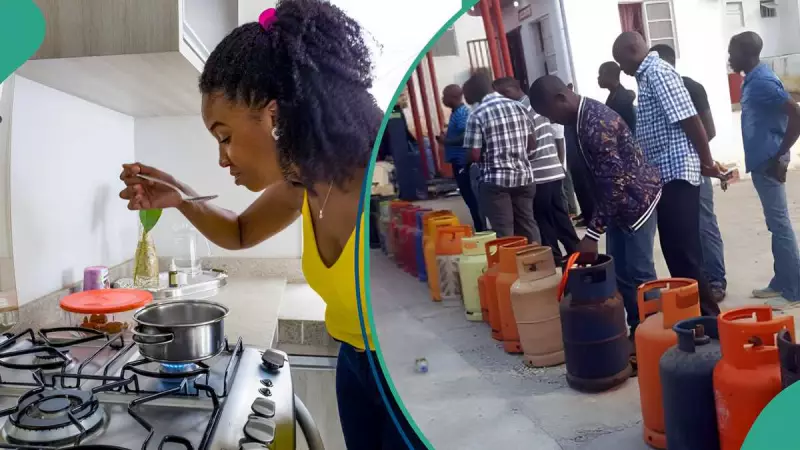
Nigerian households are bracing for another wave of economic pressure as cooking gas prices experience a fresh surge across the country. Industry dealers are sounding the alarm about potential scarcity that could further complicate the situation for millions of consumers.
Market Reality: Steep Price Increases Hit Consumers
Market investigations reveal that the price of 12.5kg cooking gas cylinders has jumped to unprecedented levels, with many retailers now selling between ₦18,000 and ₦20,000 per refill. This represents a significant increase from previous months, placing additional strain on family budgets already stretched thin by inflation.
Dealers Identify Key Factors Behind the Crisis
According to industry insiders, several factors are contributing to the current market disruption:
- Foreign Exchange Challenges: The persistent volatility in foreign exchange rates has made imports more expensive
- Logistical Constraints: Transportation and distribution bottlenecks are affecting supply chains
- International Market Pressures: Global energy price fluctuations are impacting local markets
- Infrastructure Issues: Insufficient domestic production capacity continues to create supply gaps
Economic Impact on Nigerian Households
The continuous rise in cooking gas prices is forcing many families to reconsider their energy options. Some households are reverting to traditional cooking methods using firewood and charcoal, raising environmental and health concerns. The situation is particularly challenging for low-income families who rely on affordable energy for daily cooking needs.
Industry Experts Warn of Worsening Situation
Energy sector analysts predict that the situation might deteriorate further in the coming weeks unless immediate interventions are implemented. Dealers emphasize the need for government support in addressing the fundamental issues affecting the liquefied petroleum gas (LPG) market.
"The current trend is unsustainable for both consumers and retailers," noted one industry representative. "We need comprehensive solutions that address both pricing and availability concerns to prevent a full-blown crisis."
Looking Ahead: Potential Solutions and Alternatives
As stakeholders seek lasting solutions, consumers are exploring energy-efficient cooking practices and considering alternative energy sources. The situation highlights the urgent need for Nigeria to develop its domestic gas infrastructure and create more stable energy policies that protect consumers from frequent price shocks.





